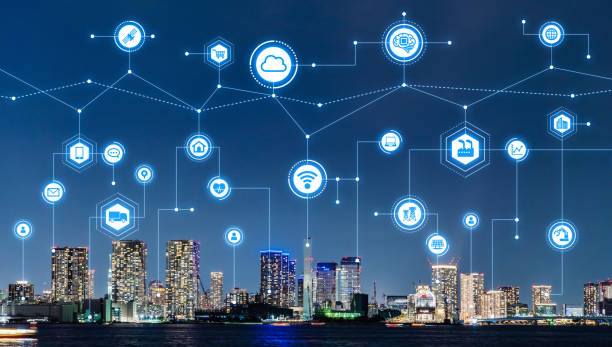The Dawn of the Smart City Era
As the world becomes increasingly urbanized, the concept of “smart cities” has emerged as a transformative vision for the future of metropolitan areas. Smart cities leverage advanced technologies to enhance the quality of life for residents, improve the efficiency of municipal operations, and create more sustainable, livable environments.
At the heart of this smart city revolution is the convergence of several key technological advancements, including the Internet of Things (IoT), big data analytics, artificial intelligence, and renewable energy solutions. These innovations are enabling cities to gather real-time data, automate processes, and make data-driven decisions that optimize the use of resources and address the complex challenges faced by modern urban centers.
Harnessing the Power of IoT and Big Data
The foundation of a smart city lies in its ability to collect and analyze vast amounts of data from a network of interconnected sensors and devices. From traffic monitoring systems and smart streetlights to waste management systems and environmental sensors, IoT technology allows cities to gather valuable insights about everything from infrastructure maintenance to citizen behavior patterns.
By leveraging big data analytics and AI-powered algorithms, smart cities can use this wealth of information to make more informed decisions, streamline operations, and proactively address emerging issues. For example, traffic management systems can dynamically adjust signal timing and route drivers to reduce congestion, while predictive maintenance models can anticipate equipment failures before they occur, minimizing disruptions to essential services.
Enhancing Livability and Sustainability
Beyond improving operational efficiency, smart city initiatives are also focused on enhancing the overall quality of life for urban residents. Through the use of smart technologies, cities can create more livable and sustainable environments that cater to the needs of their citizens.
One key aspect of this is the development of intelligent transportation systems that prioritize sustainable modes of mobility, such as public transit, pedestrian walkways, and bike-sharing programs. By reducing reliance on private vehicles, smart cities can lower emissions, alleviate traffic, and promote healthier, more active lifestyles.
Additionally, smart city initiatives often incorporate renewable energy solutions, energy-efficient building technologies, and advanced waste management systems to minimize the environmental impact of urban areas. This not only benefits the local community but also contributes to global sustainability efforts.
Empowering Citizens and Fostering Innovation
Smart cities are not just about technological advancements; they are also about empowering citizens and fostering an environment of innovation and collaboration. Through the use of digital platforms and e-governance tools, smart cities can encourage greater civic engagement, allowing residents to participate in decision-making processes, report issues, and access public services more efficiently.
Moreover, smart city frameworks often prioritize the development of innovation hubs and testbeds, where startups, researchers, and municipal authorities can work together to develop and pilot cutting-edge solutions. This ecosystem of collaboration and experimentation can drive the creation of new technologies, business models, and urban planning strategies that directly address the needs of the local community.
As the world continues to urbanize, the smart city model has emerged as a promising approach to tackling the multifaceted challenges faced by modern metropolitan areas. By harnessing the power of advanced technologies, smart cities have the potential to create more livable, sustainable, and inclusive urban environments that improve the lives of citizens and pave the way for a brighter future.
